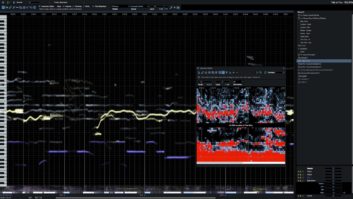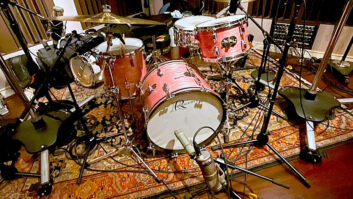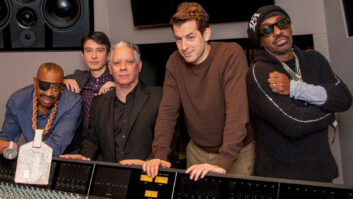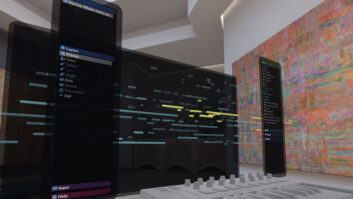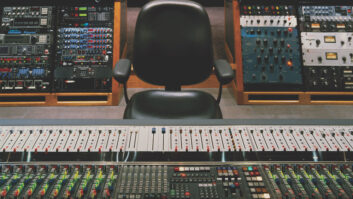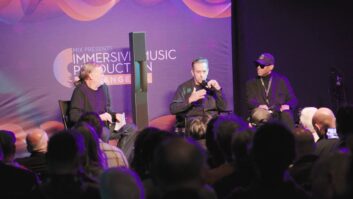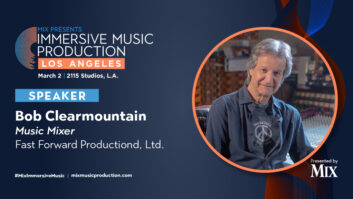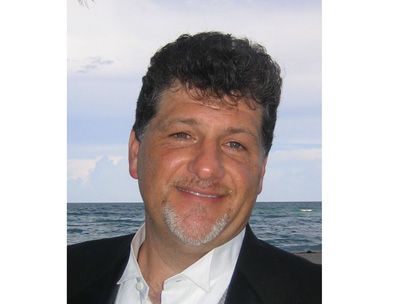
It’s always good, when talking about south Florida, to check in with Hit Factory Criteria VP and general manager Trevor Fletcher. After 30 years, his often-wry cynicism is in perfect balance with his informed optimism. He also loves music, and he loves Miami.
So how are things at Hit Factory Criteria?
They’re good right now. We just finished working on the new Mana record, the biggest Latin rock act in the world. They pride themselves on recording the old-school way, with acoustically great rooms and top-notch engineers. Yesterday I gave a tour to a band from Venezuela. Today, I had a tour with a classically trained violinist from the Ukraine who wants to do EDM. So we’ve become the facilitators. How do you find an engineer for violin EDM? In your iPhone?
But you’ve always attracted a wide range of music. Just like Miami.
When the studio first opened, our first Gold record was James Brown’s “I Feel Good.” Then the next day they cut “Papa’s Got a Brand New Bag.” Then it evolved into Aretha Franklin, Brook Benton, Wilson Pickett, some Stax, Tom Dowd and a ton of work with Atlantic Records—a lot of groundbreaking R&B. Then it segued into rock ’n’ roll, for years, and everything that went along with it. Then the gas crisis and everything fell apart, then Disco and dance music, then back to rock. Then the Latin influence and some of the urban tracks. It’s cyclical but not exclusively. We might be doing an R.E.M. record in one room while we’re doing a Lil Wayne record down the hall. At no point was any genre exclusive, but it does cycle. And those albums are all made completely differently.
What about the Latin market? We tend to equate Miami with Latin out here on the West Coast.
To be completely cliché, Miami in and of itself is the gateway to the Americas. The population is largely Hispanic, but you have Brazilian, Cuban, Puerto Ricans, and so on. To an Anglo, all those genres are Spanish, but it’s all distinct—a lot of styles of music with a lot of local ethnicities. From a music production standpoint, a lot of producers for the Latin market have their own production spaces. A lot of them don’t use our facility to the extent that they did prior to the advent of DAWs. But there is still a need for our services—you just have to adapt. Fortunately we’ve been here a long time and have a wide range of clients.
So how has your studio’s role changed?
We’re lucky in that we still get major projects from long-established clients. But as a recording studio today, we find we have to educate some clients. I got a call two days ago from a client, an independent artist who had come in and recorded vocals. They then wanted to know if we could mix-and-master, as if it were one thing. I get that all the time. Another client came in and was astonished it took three hours to set up his session, but he had nothing to compare it to. We’re cutting bass, drums, two guitars, two keyboards, vocals—all live—and at the end of the day, he had nine songs. He was amazed at the process. He could use this room mic at this height, this EQ, this compression. They may have only ever been in their own studio, so you have to educate them both to help their project and to protect the reputation of the studio.
Is that what studios have become? Educators?
In part… I’m prone to making analogies. I mean no offense to anyone—and this is only my opinion-—but I believe that the voodoo, the magic, the creativity, the learning as an apprentice and working with a master for years, gleaning knowledge from them in the real world—that’s largely disappeared. There are very few great studios left, even fewer of the great masters. I tell my staff that it’s never been more technical, but not to discount the art.
In the Middle Ages, the monasteries were the places where the fine arts, the illuminated manuscripts, science, astrology and all these collections of knowledge—while the rest of the world was falling apart, these monasteries were the places that kept knowledge and craft and art going and improved on it and documented it for future generations. I tell my staff, “Look, there are so few remaining large multiroom historic facilities that have elite clientele, engineers and producers through them—like our facility. It’s your responsibility to realize that and learn from these people and value the knowledge.”
We know you love studios. Why do you love Miami?
Isn’t that kind of like asking somebody who’s been married 25 years why they like their wife so much or why they’re still married? [Laughs] It’s what I do. I grew up around the studios, stealing roaches from ashtrays in high school, you know. When I went to college to get a degree in telecommunications management, they were teaching me stuff I had already been doing. It’s in my DNA. Back when the Hit Factory purchased Criteria, of course I thought about other options or pursuits, relocating. But I came to the realization that I would miss Miami. I would miss being close to the ocean. I would miss the swirl of ethnicities. The food, the languages, the cultural influences. It’s rich, it’s vibrant. In south Florida there are certain types of music or influences that aren’t available to people in Los Angeles or New York or Chicago. It’s definitely a unique atmosphere, and I would miss it.
